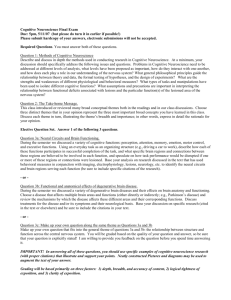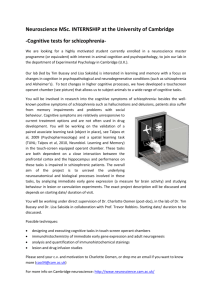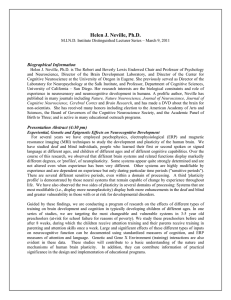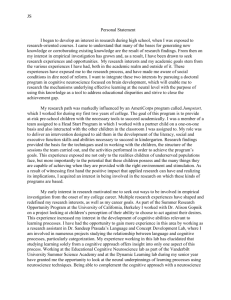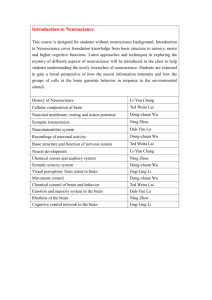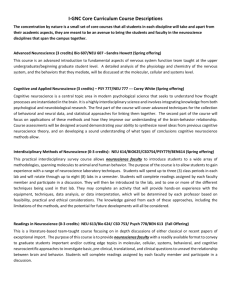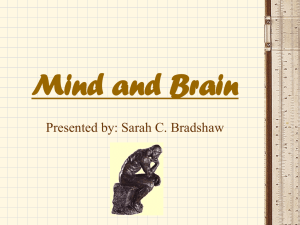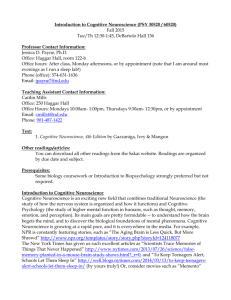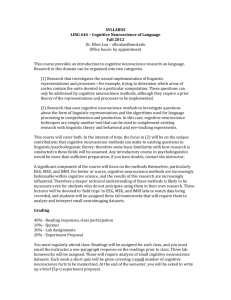relevance of neuroscience
advertisement
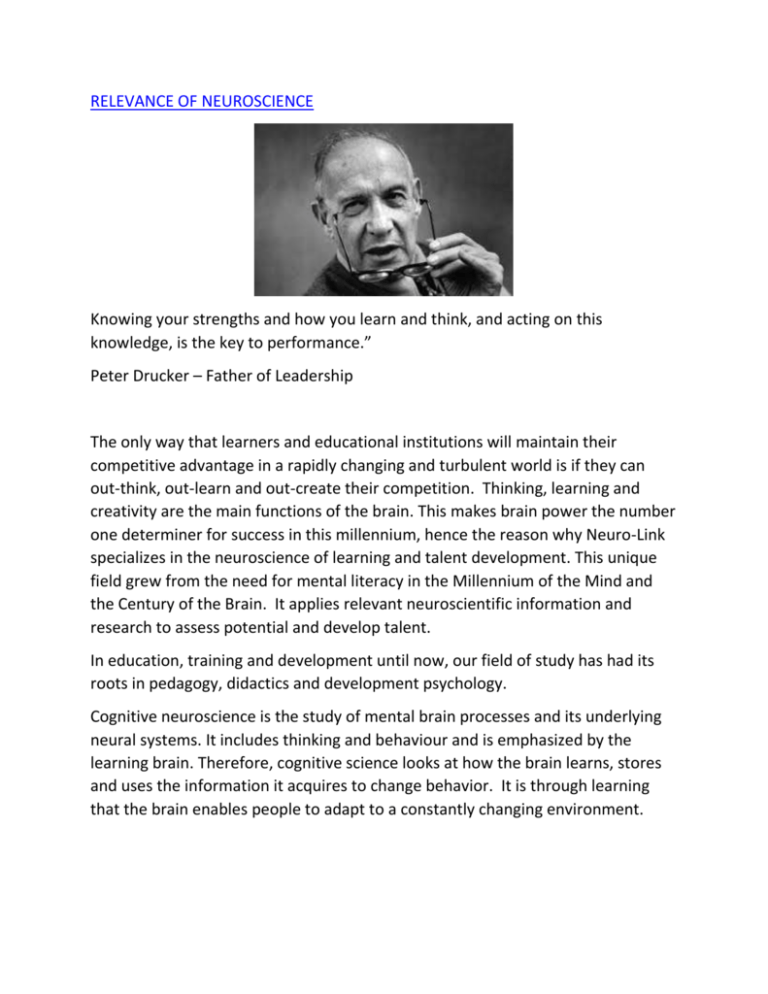
RELEVANCE OF NEUROSCIENCE Knowing your strengths and how you learn and think, and acting on this knowledge, is the key to performance.” Peter Drucker – Father of Leadership The only way that learners and educational institutions will maintain their competitive advantage in a rapidly changing and turbulent world is if they can out-think, out-learn and out-create their competition. Thinking, learning and creativity are the main functions of the brain. This makes brain power the number one determiner for success in this millennium, hence the reason why Neuro-Link specializes in the neuroscience of learning and talent development. This unique field grew from the need for mental literacy in the Millennium of the Mind and the Century of the Brain. It applies relevant neuroscientific information and research to assess potential and develop talent. In education, training and development until now, our field of study has had its roots in pedagogy, didactics and development psychology. Cognitive neuroscience is the study of mental brain processes and its underlying neural systems. It includes thinking and behaviour and is emphasized by the learning brain. Therefore, cognitive science looks at how the brain learns, stores and uses the information it acquires to change behavior. It is through learning that the brain enables people to adapt to a constantly changing environment. The area of overlap between the different disciplines, including cognitive science and education, has been identified as a trans-disciplinary field of study called educational neuroscience or neuro-education. This field investigates basic biological processes involved in becoming literate and numerate, and explores learning how to learn, cognitive control, mental flexibility, motivation as well as social and emotional learning experiences. Education and training professionals should only use research that provides sufficient evidence and that can be put into practice. Cognitive science is a promising field of study and has exciting potential studies ahead. Therefore, all education, training and development professionals should have a fundamental knowledge about the brain and apply cognitive neuroscience evidence to their practice’ of developing people. In the 21st century companies and educational institutions will put much more emphasis on individual, social and organizational learning to innovate and compete successfully in the global knowledge economy. Cognitive neuroscience of learning is one of the most researched sciences today. However, there are at the same time questionable media reports and claims about brain-based learning that, according to some scientists, often over-simplify, misrepresent and allow for “neuro-myths” to flourish. WHY NEUROSCIENCE? It has a very strong physiological base A neuroscientific approach in talent development produces profound practical results It includes information and research in sciences like anatomy, biochemistry, genetics, immunology, physiology, psychology, education etc. It complements any technical and people development science like Neurolinguistic Programming, Emotional Intelligence, and integrates easily with other learning technologies Certain aspects of brain-based learning have become prerequisites for any other learning intervention as it: Switches on the brain for learning. Prepares the brain for learning Accelerates learning. Enhances behavior change. Ensures better learning results. For more information about the neuroscientific approach to learning and all that Neuro-Link has to offer please have a look at www.neurolink.company Dr Andre Vermeulen www.drandrevermeulen.com


